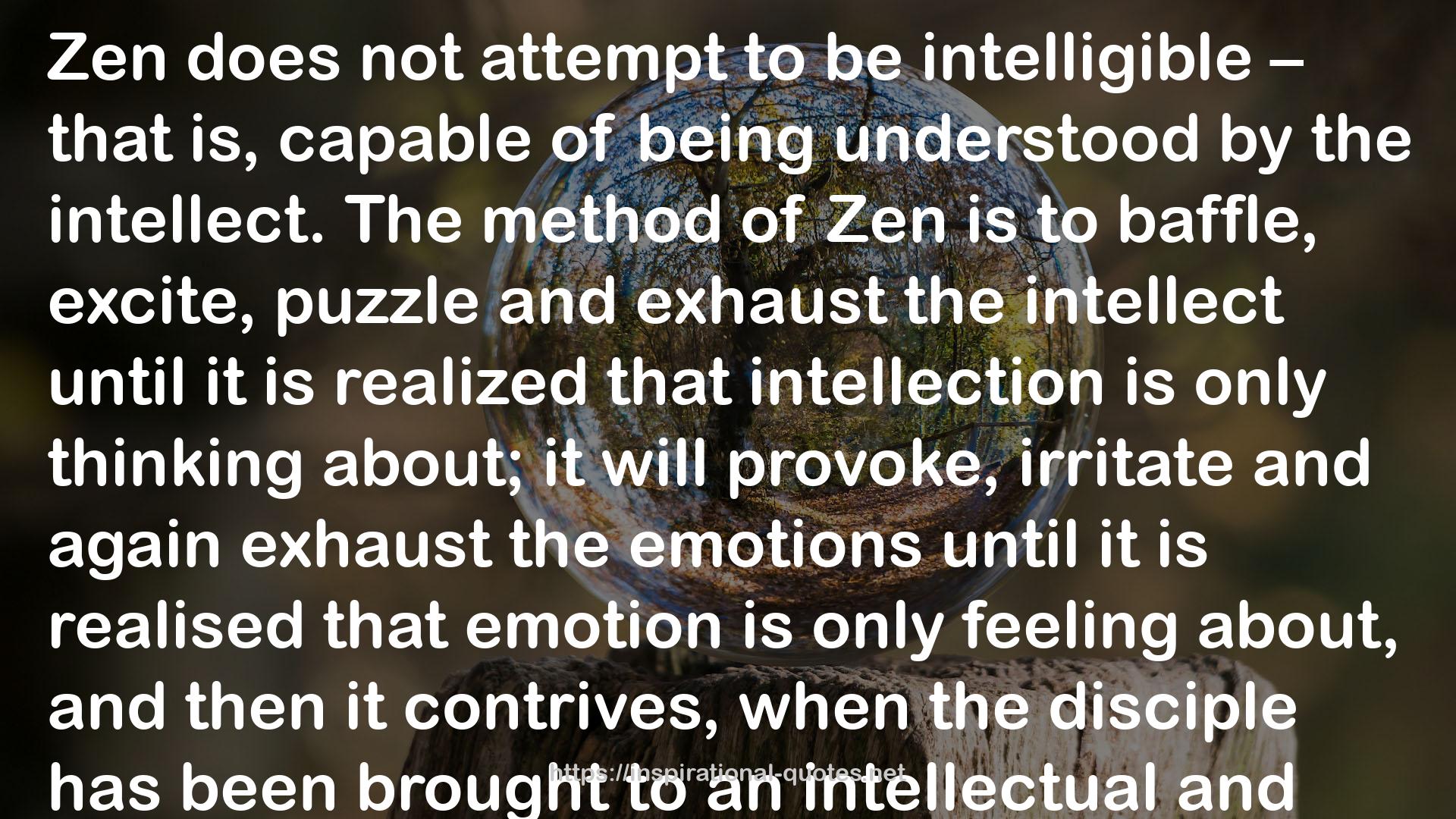" Zen does not attempt to be intelligible – that is, capable of being understood by the intellect. The method of Zen is to baffle, excite, puzzle and exhaust the intellect until it is realized that intellection is only thinking about; it will provoke, irritate and again exhaust the emotions until it is realised that emotion is only feeling about, and then it contrives, when the disciple has been brought to an intellectual and emotional impasse, to bridge the gap between second-hand conceptual contact with reality, and first-hand experience. To effect this it calls into play a higher faculty of the mind, known as intuition or Buddhi, which is sometimes called the ‘Eye of the Spirit’. In short, the aim of Zen is to focus the attention on reality itself, instead of on our intellectual and emotional reactions to reality — reality being that ever-changing, ever-growing, indefinable something known as “life,” which will never stop for a moment for us to fit it satisfactorily into any rigid system of pigeon-holes and ideas. "
― Alan W. Watts , The Spirit of Zen
